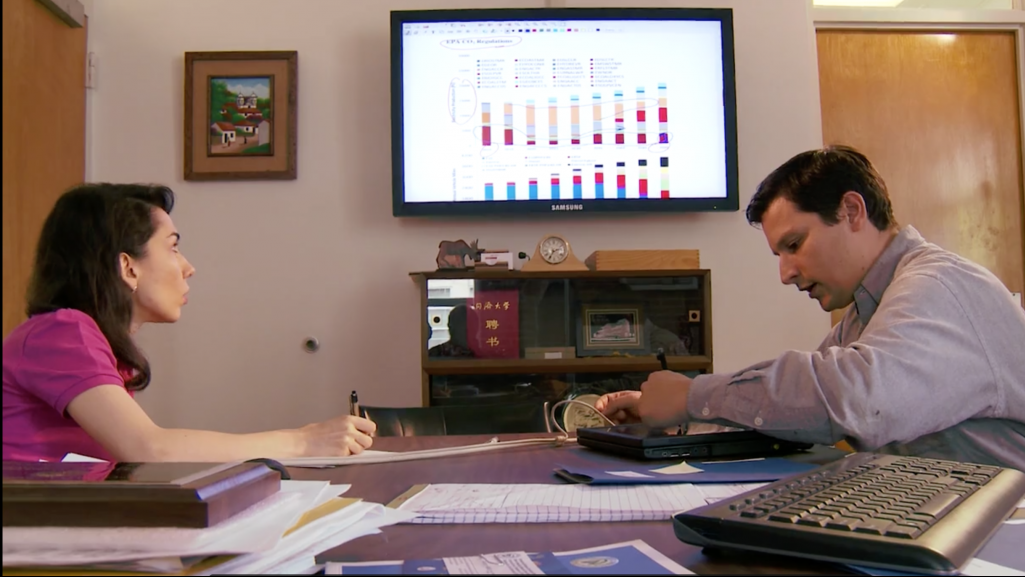Environmental, Water Resources, and Coastal Engineering
Our research addresses tough questions across a range of domains.
Our group — Environmental, Water Resources, and Coastal Engineering — addresses a wide array of research questions that span different research areas and utilize a variety of methodological approaches. The research performed within our group cuts across the following domains.
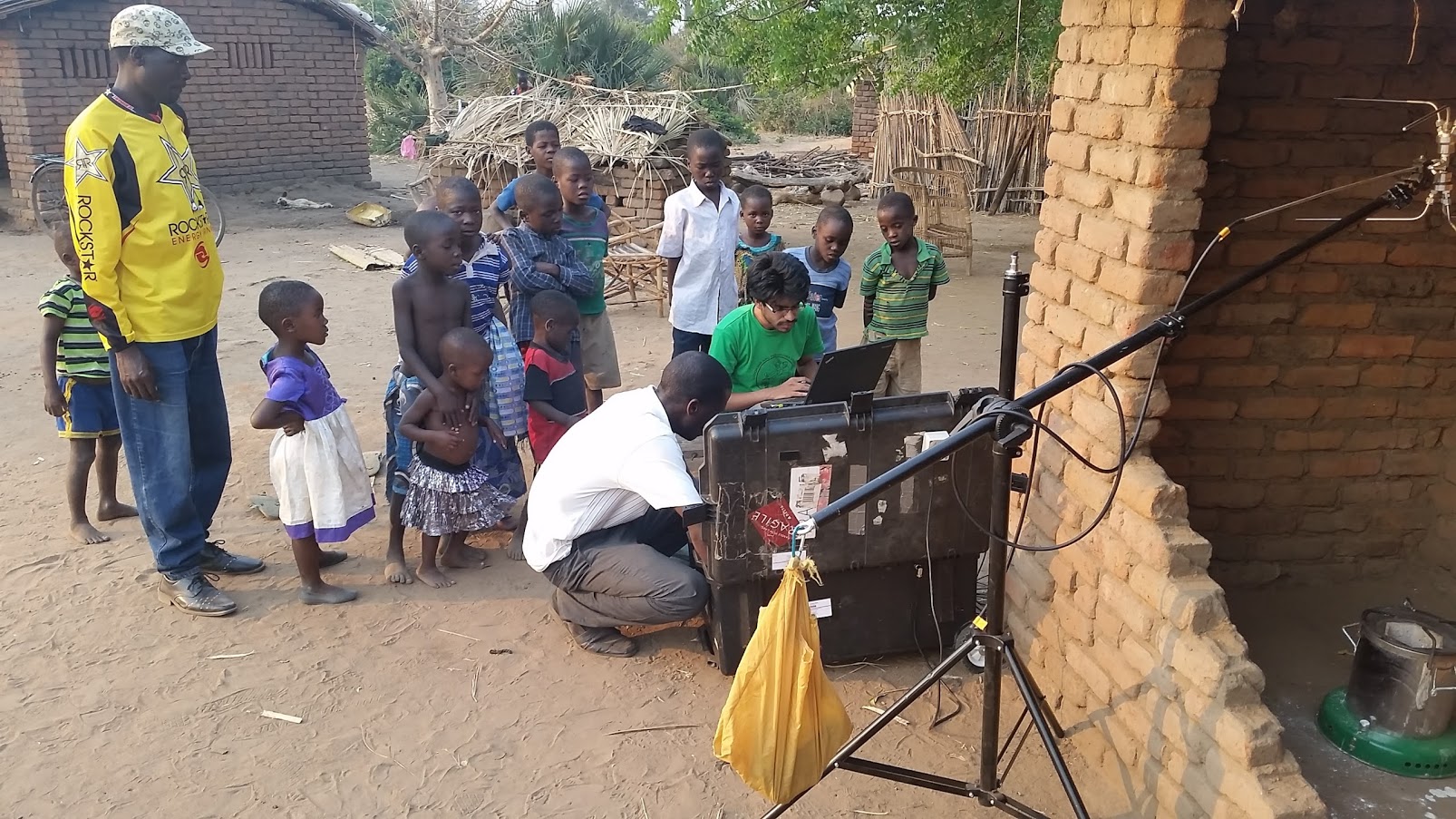
Air Pollution Engineering
What are the key fate and transport mechanisms for air pollutants and how can they be controlled?
How can we better protect our beaches from hazards like storm surge and oil spills?
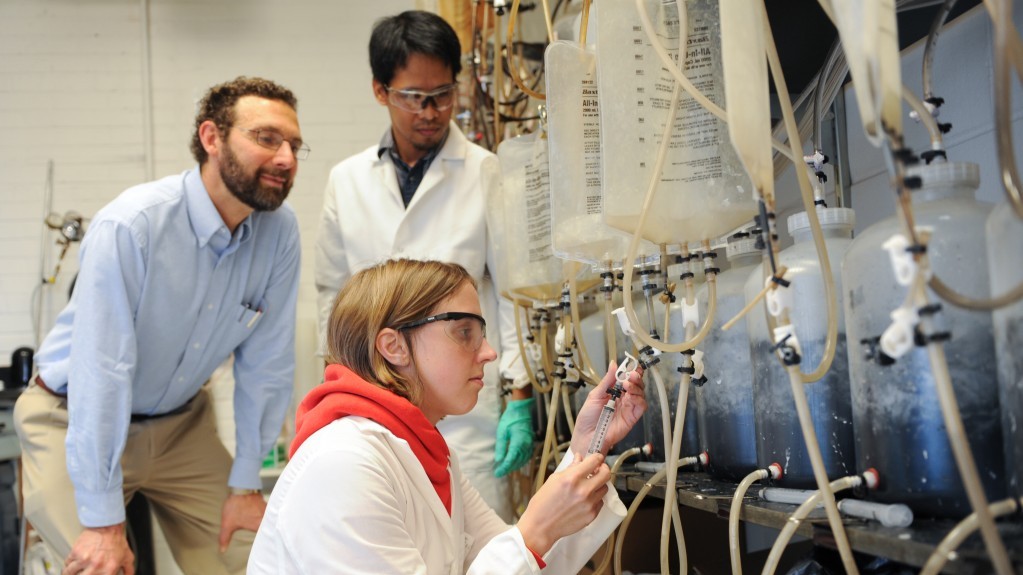 Environmental Process Engineering
Environmental Process EngineeringHow can we improve the design of drinking water, waste water, and solid waste treatment systems?
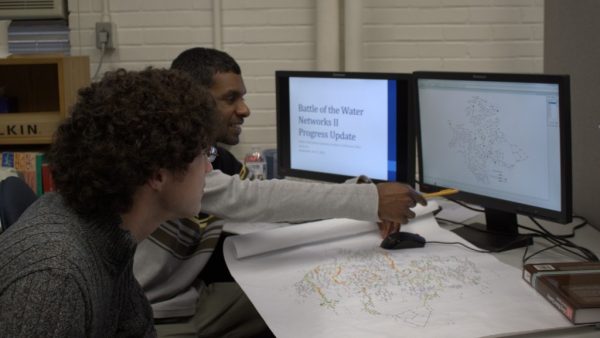
Modeling and Systems Analysis
How can we design engineered systems to reduce cost and environmental impacts?
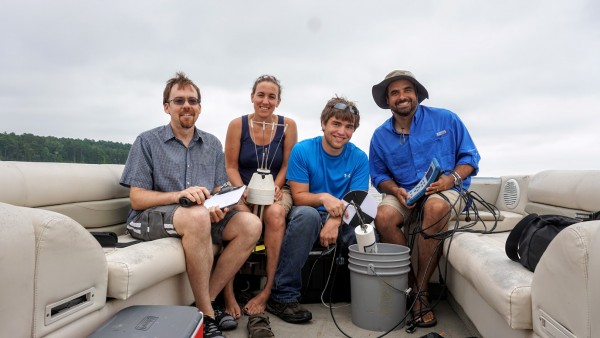
Water Resources Engineering
How can we better manage and protect fresh and estuarine surface waters?
In the News
TED Talk by CCEE Professor Francis De Los Reyes: Sanitation is a Basic Human Right

Faculty
| Katherine Anarde | human-landscape interactions in the coastal zone, barrier island response, drivers and impact of chronic flooding, meteotsunami generation and contributions to extreme water levels | |
| Sankar Arumugam | hydroclimatology, water management, uncertainty reduction in hydrologic modeling, environmental impacts assessment | |
| Tarek Aziz | environmental process engineering, waste to energy, life cycle analysis | |
| Morton Barlaz | solid waste management, decomposition in landfills, life-cycle analysis | |
| Emily Berglund | water resources management, systems analysis, evolutionary computation, complex adaptive systems | |
| Douglas Call | water-energy nexus, resource recovery from wastewater, microbial electrochemistry, salinity-gradient energy | |
| Francis De Los Reyes | environmental biotechnology, biological processes, wastewater treatment | |
| Joseph DeCarolis | energy systems modeling, uncertainty quantification, climate change mitigation | |
| Casey Dietrich | coastal hydrodynamics, large-scale modeling of coastal hazards, finite elements, high-performance computing | |
| Joel Ducoste | environmental processes, water and wastewater treatment, CFD | |
| Chris Frey | air pollution emissions, prevention, and control, measurement and modeling of onroad and nonroad vehicle emissions, exposure and risk analysis, variability and uncertainty, modeling and evaluation of energy systems | |
| Fernando Garcia Menendez | air quality, environmental modeling, climate-air pollution interactions, wildland fire, high-performance computing | |
| interdisciplinary research on the quantification of risks due to environmental contamination and on the quantitative comparison policy options for controlling environmental risks | ||
| Andrew Grieshop | air pollution, atmospheric aerosols, characterization of combustion sources, air pollution exposure assessment, links between air pollution and climate change | |
| Angela Harris | environmental health microbiology, sustainable access to safe drinking water and sanitation, food-water nexus | |
| Jeremiah Johnson | energy systems analysis, renewable energy integration, life cycle assessment, industrial ecology | |
| Detlef Knappe | drinking water treatment, adsorption processes, oxidation processes, emerging contaminants | |
| Dan Obenour | water quality and watershed modeling, environmental forecasting, geospatial modeling, uncertainty quantification | |
| Ranji Ranjithan | water resources, infrastructure systems, sustainability and resilience, systems analysis, mathematical modeling, optimization, evolutionary computation | |
| Jacelyn Rice-Boayue | modeling, analytical, and social science capabilities to explore the fate, transport and treatment of emerging contaminants, integrated water resource management, stormwater treatment and environmental health and equity | |
| Jorge E. San Juan | coastal ecosystems altering water currents, sediment transport and the geomorphological evolution of coasts |
Graduate Research
Depending on the research area, students can learn laboratory and field measurement techniques, computational modeling, geographic information systems, and decision support methodologies. Our graduate students benefit from an array of cross-disciplinary activities, and can shape their graduate programs accordingly. We actively communicate research results via peer-reviewed journal papers, seminars, and short courses. Our students frequently win best paper awards at national conferences. Graduates find placement in local, state, and national government agencies, consulting and environmental service firms, non-profit research institutes, non-governmental organizations, and academia.
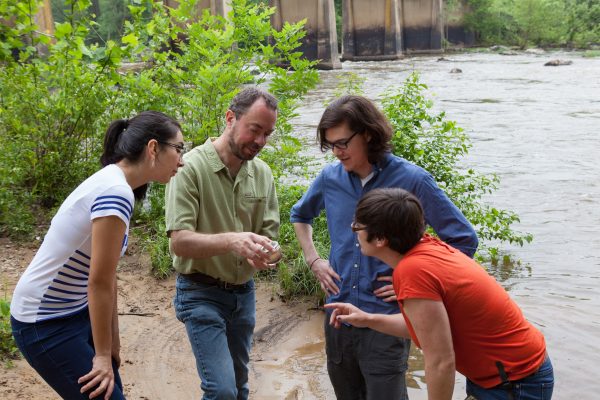
Graduate Degree Programs
We offer programs of study leading to the Master of Science in Civil Engineering (MSCE), Master of Science in Environmental Engineering (MSENE), Master of Civil Engineering (MCE), Master of Environmental Engineering (MENE), and Doctor of Philosophy (PhD) degrees.
- The MS degrees require a minimum of 30 credit hours of graduate coursework that includes six hours of thesis credit, and a one-credit seminar course. It is suggested that at least 15 credit hours should be fulfilled through environmental engineering courses, as listed below. Exceptions are allowed with the consent of your advisor and thesis committee.
- The MCE and MENE degrees require 30 hours of graduate coursework, and a one-credit seminar course; an independent study project may be substituted for up to three hours of coursework with the agreement of a faculty adviser. It is suggested that at least 18 credit hours should be fulfilled through environmental engineering courses, as listed below. Exceptions are allowed with the consent of your advisor.
- The MCE and MENE degrees are also available by distance education through Engineering Online.
- For the PhD program, there are no definite credit hour requirements, although 54 credit hours (~ 3-4 years) beyond the master’s degree is typical. The major element of the doctoral program is the dissertation, which reports an original investigation leading to a significant contribution to knowledge. For the PhD degree, consult with your advisor for appropriate courses.
- Final oral examinations are required for the MS and PhD degrees.
Doctoral students have access to several professional development opportunities, offered by the CCEE Office of Graduate Professional Development and the NC State Graduate School (e.g., Preparing the Professoriate (PTP)) to help them prepare to succeed in research and academic careers.
Graduate Courses
We offer over twenty-five graduate courses that support education and research in the six focus areas. All of these courses are available to on-campus students and many are available to distance education students via the Engineering Online (EOL) program.
| Course | Course Number | Credits | Current & Planned Offerings** | ||||
|---|---|---|---|---|---|---|---|
| Fall | Spring | ||||||
| Physical Principles of Environmental Engineering* | CE 571 | 3 | |||||
| Biological Principles of Environmental Engineering* | CE 573 | 3 | |||||
| Chemical Principles of Environmental Engineering* | CE 574 | 3 | |||||
| Engineering Principles of Air Pollution Control* | CE 576 | 3 | |||||
| Engineering Principles of Solid Waste Management* | CE 577 | 3 | |||||
| Energy and Climate* | CE 578 | 3 | |||||
| Principles of Air Quality Engineering* | CE 579 | 3 | |||||
| Fluid Mechanics in Natural Environments | CE 581 | 3 | |||||
| Coastal Hydrodynamics | CE 582 | 3 | |||||
| Engineering Aspects of Coastal Processes | CE 583 | 3 | |||||
| Hydraulics of Ground Water* | CE 584 | 3 | |||||
| Engineering Hydrology | CE 586 | 3 | |||||
| Water Resources Engineering* | CE 588 | 3 | |||||
| Special Topics: Engineering Measurement and Data Analysis | CE 596 | 3 | |||||
| Special Topics: Surface Water Quality Modeling | CE 596 | 3 | |||||
| Special Topics: Sustainable Building Design | CE 596 | 3 | |||||
| Special Topics: Water and Sanitation in Developing Countries | CE 596 | 3 | |||||
| Physical-Chemical Water Treatment Processes* | CE 771 | 3 | |||||
| Environmental Exposure and Risk Analysis* | CE 772 | 3 | |||||
| Environmental Bioprocess Technology* | CE 774 | 3 | |||||
| Modeling and Analysis of Environmental Systems | CE 775 | 3 | |||||
| Advanced Water Management Systems | CE 776 | 3 | |||||
| Stochastic Methods in Water and Environmental Engineering | CE 777 | 3 | |||||
| Ground Water Contaminant Transport | CE 784 | 3 | |||||
| Complex Adaptive Systems Analysis | CE 791 | 3 | |||||
| Special Topics: Atmospheric Aerosols | CE 796 | 3 | |||||
| Special Topics: Coastal Modeling | CE 796 | 3 | |||||
| Special Topics: Environmental Life Cycle Assessment | CE 796 | 3 | |||||
| Special Topics: Hydroclimatology | CE 796 | 3 | |||||
| *Note: offered through Engineering Online. **Note: Course offerings are subject to change. | |||||||
New Masters-level courses are offered as CE596 and new PhD-level courses are offered as CE796. Both sets of courses are considered “special topics” until they become permanent courses, at which point they will receive different course numbers. Students may register by selecting the appropriate section of CE596 or CE796 noted in the course schedule.
In addition to these courses in Civil Engineering, students may take related elective courses offered by other departments. Representative lists of courses are shown in the description of each area of specialization.
Financial Support
Fellowships and graduate assistantships are available for highly qualified students. Outstanding applicants may also be considered for Dean’s Merit Fellowship awards (approximately ten awards each year), which adds a supplement to a graduate assistantship. Exceptional doctoral applicants are eligible for several university Doctoral Fellowship awards (about two each year). In addition, several students are supported by NSF Graduate Fellowship awards and funding from the Fulbright Program. Graduate assistantship awards typically include tuition and health insurance coverage. Applicants wishing to be considered for financial support should submit a complete application, including GRE scores, by February 10 of each year.
Related information
Facilities and Centers
Contact Information
Andy Grieshop
Group Coordinator
Director of Graduate Programs
Department of Civil, Construction, and Environmental Engineering

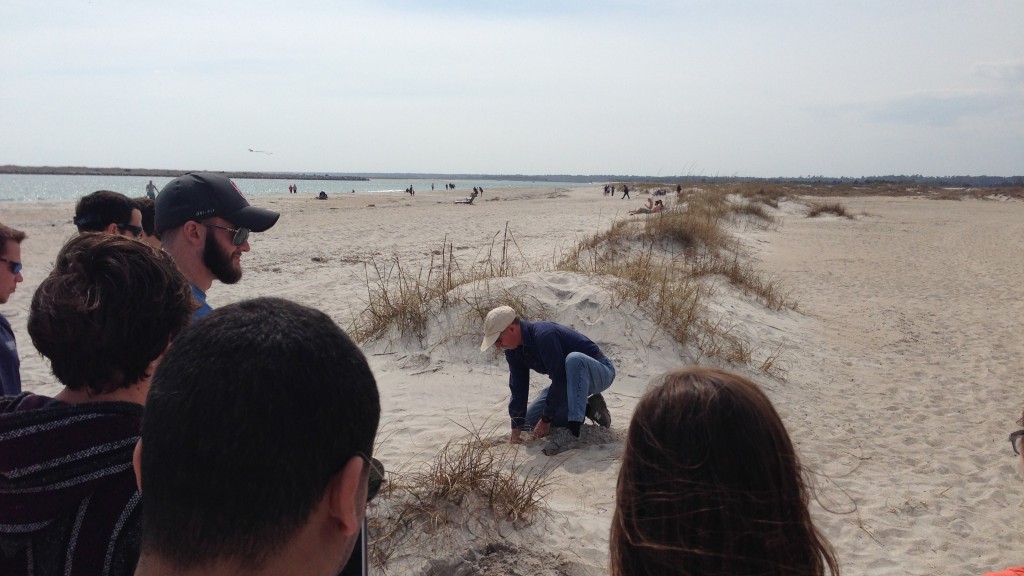 Coastal Engineering
Coastal Engineering